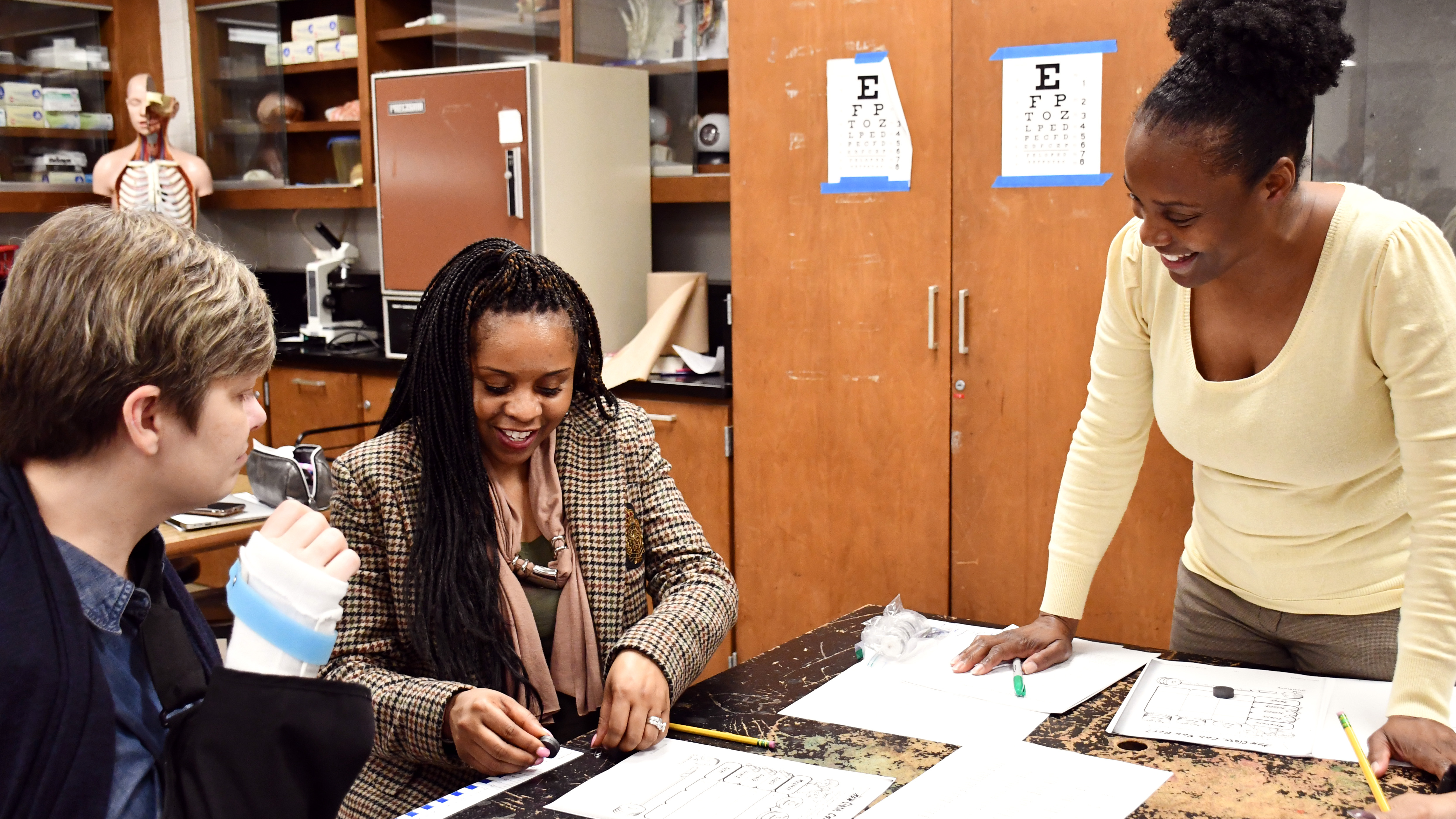Elementary Students and Teachers Benefit Thanks to Specialized Cohort Programs in Science and Mathematics

When Nakia White leads a science lesson with her students at Lockhart Elementary School, she believes her students will connect with the material more if she uses some information they already know. She looks for ways to incorporate all the disciplines — from reading and writing to math — into one lesson to make sure her students get the most from the experience.
That’s just one example of how she’s improved as a practitioner since enrolling in the science cohort of the master of education in elementary education program at the NC State College of Education — the first and only program of its kind in North Carolina.
This program, which offers cohorts in mathematics in addition to science, focuses on developing teachers into leaders who possess a deep understanding of how elementary-aged children learn science.
“This program expands teachers’ science content knowledge in life, physical, and earth/space science as well as supports their learning about research-based effective science teaching practices,” said Sarah Carrier, associate professor of elementary science education and graduate program coordinator.
And it is one more way the college is working to meet the nation’s need for highly qualified teachers who inspire students to pursue careers in science, technology, engineering and mathematics (STEM).
The focus on student understanding is what initially drew Shane Dongilli, a science teacher in Northampton County, to the program.
“This program is helping me become better at teaching science,” he said. “It’s taken me out of my comfort zone in a good way. I was starting to get comfortable in what I was teaching, but this program has taken me to another level where I never thought I would be. ”
For Dongilli, this advanced preparation program has given him the tools and resources needed to not only become a better science teacher himself but to also support and coach other teachers to become more confident in their science knowledge and instruction.
Classes meet face-to-face and online with professors who are experts in their fields and have experience teaching elementary school students. One of the key components of the program’s structure is its focus on collaborative and interactive learning.
During off-campus class meetings, program instructors support the graduate students as they guide members of small groups through a mathematics or science activity they have created for a K-5 classroom using research-based instruction strategies.
On one such evening, Katy Ham, a member of the mathematics cohort, walked her group through a lesson she created on magnets. Ham works for Durham Public Schools and started the program with a goal to become a math coach at an elementary school when she graduated. Three months into the program, she was offered her dream job at C.C. Spaulding Elementary School.
“I’ve been blown away at the new content knowledge that I have and new strategies for instruction I have gained,” Ham said. “It’s really impacted the way I coach teachers and has taught me new things that I can apply as I’m supporting and encouraging other educators.”
Ham, along with 13 of her classmates, will graduate from the college May 10 with a master’s degree in elementary education and earning and “add-on” to their teaching licenses designating them as specialists in either science or mathematics.
“I am so very proud of the first science cohort,” Carrier said. “They are sharing what they have been learning with their students, fellow teachers and their principals.”
Those students are also seeing their work as an investment in the future.
“It’s a huge gift to invest in other teachers, which means investing in more kids,” Ham said. “Programs like this one demonstrate that we can all continuously improve our craft as educators and help kids grow.”
- Categories:


